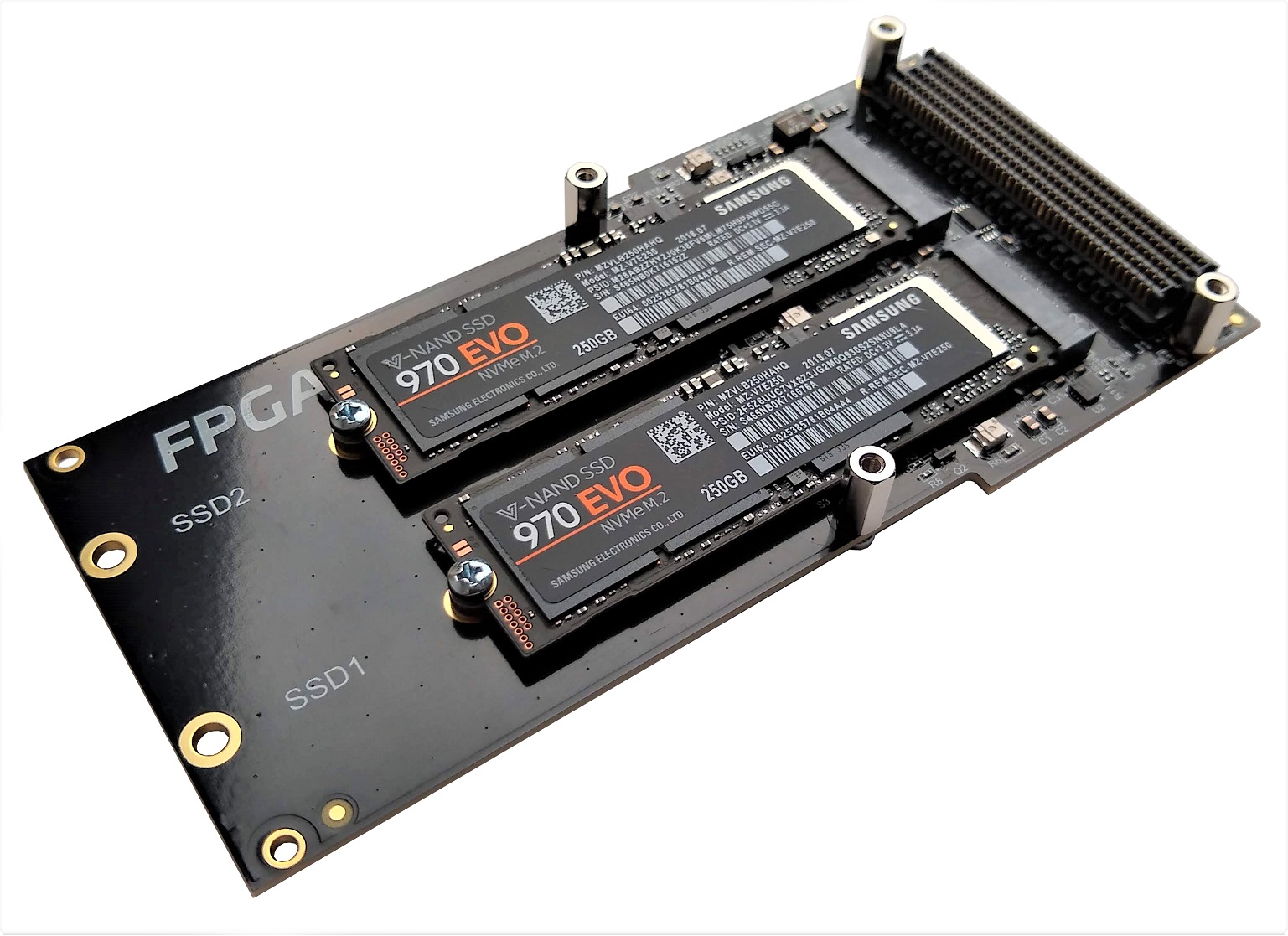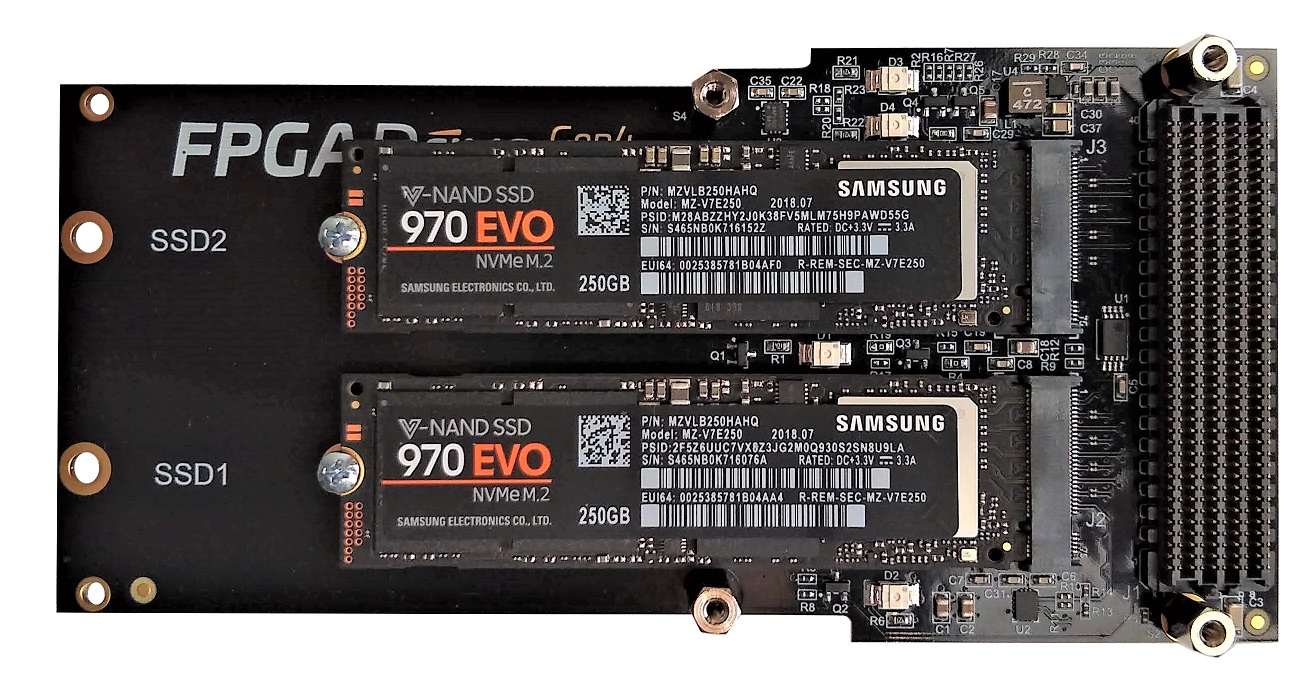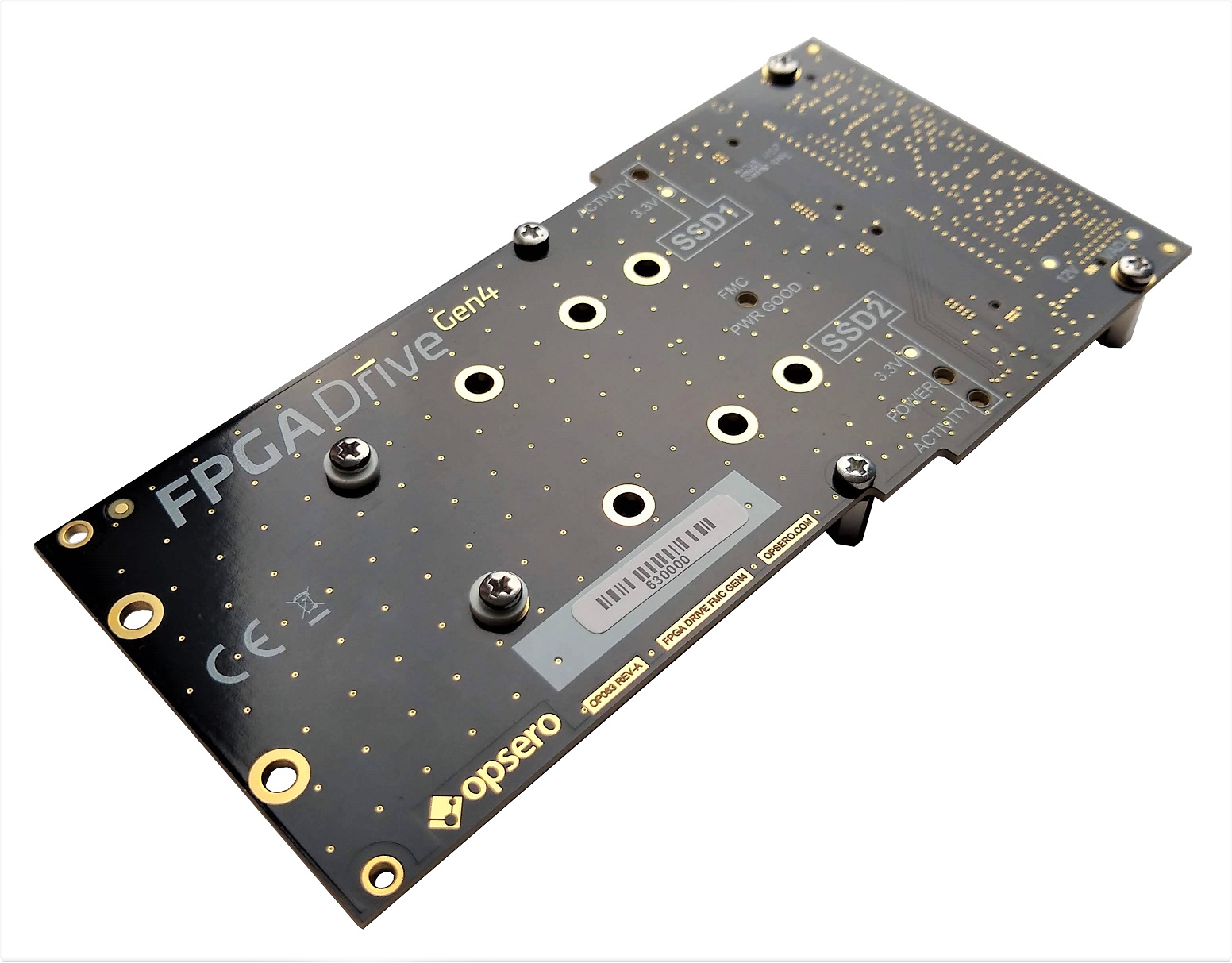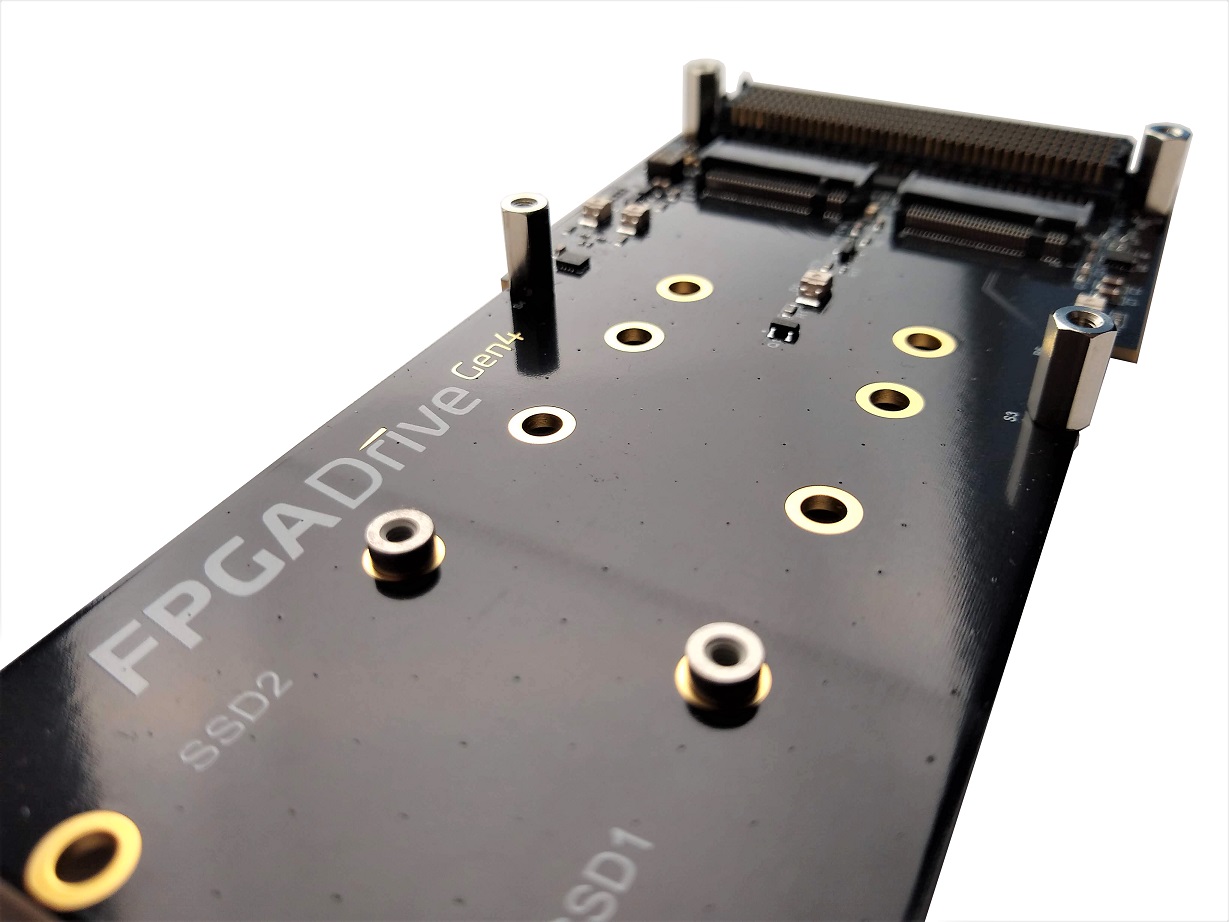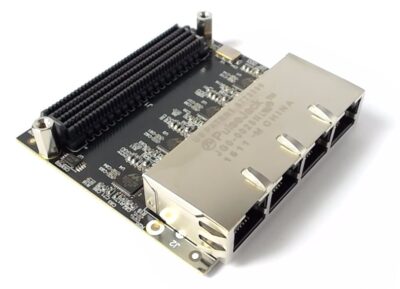Description
FPGA Drive FMC Gen4 is an FPGA Mezzanine Card that allows you to connect up to 2x M.2 form factor NVMe SSDs to your FPGA or MPSoC development board. Both of the SSDs have their own independent 4-lane PCIe link to the FPGA/MPSoC for maximum throughput. On-board 100MHz oscillators provide precision clock sources for the SSDs and the FPGA/MPSoC. For more detailed information, including specifications, technical documents, tutorials and example designs for the latest version of Vivado, please visit the product website.
- Supports 2x M.2 NGFF M-key PCIe solid-state drives (SSD not included)
- Supports up to 4 lanes PCIe Gen4 per SSD
- HPC FMC connector interfaces with LPC or HPC FMC carriers that have connected gigabit transceivers
- Includes 2x M.2 loopback modules
- 2x 100MHz oscillators supplies clock for both FPGA and SSD
- EEPROM containing board identification
- Reference designs for several FPGA and MPSoC Evaluation boards
- Straightforward tech support
FAQ
Is FPGA Drive FMC Gen4 compatible with my FPGA board?
To support the FPGA Drive FMC Gen4, your FPGA board must have an FMC connector that is connected to at least one gigabit transceiver of the FPGA. For full support of both SSDs, your FPGA/MPSoC board must have transceivers DP0 to DP7 routed to the HPC connector. To avoid the need for purchased IP, your FPGA board should also have an integrated PCIe block that can be routed to the gigabit transceivers of the FMC connector. Please visit the product website for a list of compatible FPGA boards.
Where can I find the tutorials and example designs?
Please visit the product website for links to the tutorials and example designs.
Where does the FPGA Drive FMC Gen4 get power from?
To power it’s on-board circuitry and the SSDs, FPGA Drive FMC Gen4 gets all of it’s power through the FMC connector of the FPGA/MPSoC board. The first SSD (SSD1) is powered from the FMC’s 3.3VDC power supply. The second SSD (SSD2) is powered from the FMC’s 12VDC power supply via an on-board switching regulator which efficiently converts the 12VDC to 3.3VDC.
What are the supported Vadj voltages?
All FMC carriers provide an adjustable I/O voltage supply, known as Vadj, through the FMC connector. Some FPGA boards allow setting this voltage through jumper headers, while others have automated power management which sets the voltage according to the information contained in the EEPROM of the connected FMC board. We recommend that FPGA Drive FMC Gen4 be supplied with Vadj of 1.8V; this is the value that is programmed into the EEPROM for the power management systems. However, the FPGA Drive FMC Gen4 can actually support Vadj of 1.8V, 2.5V or 3.3V because it has on-board circuitry to make the required voltage conversions.
Do I need any purchased IP to use FPGA Drive?
The minimum requirement for interfacing an FPGA with an M.2 NVMe SSD is a PCIe IP core, however, these days many FPGA development boards have an FPGA with integrated PCIe block. If your FPGA board has an integrated PCIe block, and it can be routed to the gigabit transceivers of the FMC connector without timing issues, you will not need any purchased IP to use the FPGA Drive FMC Gen4. The reference designs rely on the Xilinx PCIe integrated block and they allow an M.2 NVMe SSD to be accessed in PetaLinux. In that use case, the NVMe protocol is handled by the operating system, or more specifically by the embedded microprocessor. If you have an application where the NVMe protocol must be handled in the FPGA fabric, you may require purchased IP.
What is the maximum read/write speed achievable with FPGA Drive FMC Gen4?
See this article for a complete answer.
Which SSDs can be used with FPGA Drive FMC Gen4?
FPGA Drive FMC Gen4 was designed to support all M.2 form factor PCIe (M-key) solid-state drives. This includes the four possible lengths: 42mm, 60mm, 80mm and 110mm (specifications 2242, 2260, 2280 and 22110, respectively).
What accessories come with the FPGA Drive FMC Gen4?
FPGA Drive FMC Gen4 comes with 4x 10mm standoffs to allow proper fixing to standard FMC carrier boards. It also comes with 2x M.2 loopback modules for testing the signal integrity of your system.
What does NOT come with the FPGA Drive FMC Gen4?
FPGA Drive FMC Gen4 does not come with a solid-state drive; they can be easily purchased from several online retailers such as Amazon.

